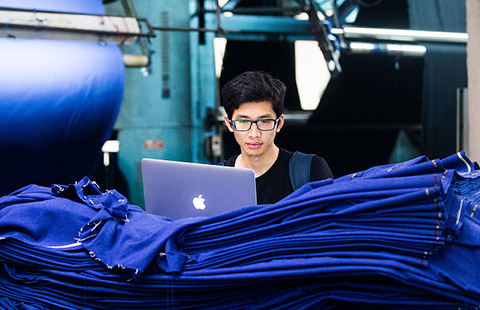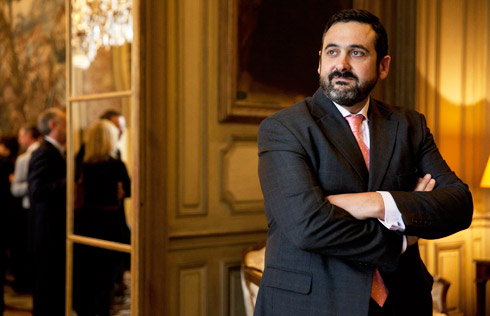Chinese bike-sharing pioneers go global
BEIJING — Ofo and Mobike, China's two largest bike-sharing companies, have sought global expansion and spread smart-commuting to more cities in the world.
Ofo has branched out to 150 cities and registered 2 billion journeys so far. It has spread its service out of China to the United States, Britain, Singapore and Kazakhstan, the company told Xinhua.
Company founder Zhang Siding said he planned to expand to 20 countries by the end of the year.
"Our trial run in some overseas cities went rather well. Many communities, for example in Cambridge in Britain, were found to be satisfied with the performance of the bikes," Zhang told Xinhua in an interview.
Since Ofo launched its service in Singapore in February, users have reached 100,000, and daily orders are at 20,000, he said.
"The bike is like a globally recognized language. Shared bikes represent freedom and convenience in riding, which is what many people need, not only in China but also globally," he said.
Ofo's arch-rival Mobike has also joined the race for global expansion.
Mobike has reached 100 cities globally, including Manchester and Salford. Founder Hu Weiwei has huge ambitions to expand its service to 200 cities in 2017.
The company said its services were now available in Singapore, Britain and Japan. Mobike has set up a company in Japan to oversee business there, Hu said.
"Mobike has put 1,000 smart bikes in Manchester and Salford in Britain, and will increase its volume in the future," Hu said.
In Manchester, a deposit for the bikes is 49 pounds ($63.66)?and fully refundable. Usage is charged at 50 pence per 30 minutes.
Using specially designed bikes equipped with GPS and proprietary smart-lock technology, Mobike enables users of its smartphone app to find a bike near them, reserve and unlock it. After reaching their destination, the user parks the bike by the roadside and locks it, automatically making the bike available to the next rider.
Steve Pyer, Mobike's manager in Britain, said Manchester would be a window to show the changes that bicycles can bring to a city and to see how city planners can benefit from data generated by smart cycling.
He said Mobike was discussing business with many cities in Europe.
"Chinese companies make smart and cool bikes, and now is a good time to promote cycling culture globally with the support of mobile technology," said Hu.
"When developing the overseas market, the most important thing to do is to gain understanding from the government and persuade them not to put a ban on the cycling model," said Ofo's Zhang. "In the overseas market, we usually start tests in a small area to fully understand user habits, and obtain trust and support from government supervisors."
Both companies have devised individualized services for different cities.
"Ofo makes modifications in the size of bike frames and lights, and arranges additional sockets for drinking bottles," Zhang said.
Some countries require riders to wear helmets, and the companies need to properly warn their users before they use the bikes.
As bike-sharing pioneers, both companies said there was no existing model to copy and they must address challenges as they meet them.
To prevent bikes from being stolen, Mobike uses a customized design for bicycle parts and installs GPS positioning device.
"Mobike is a Chinese brand. Going out to other countries, we should optimize service to the best of our abilities, by fully understanding local transportation and traffic rules, user habits and needs," Hu said. "We also work closely with traffic supervisors to improve operations, and minimize hindrance to pedestrians."

























